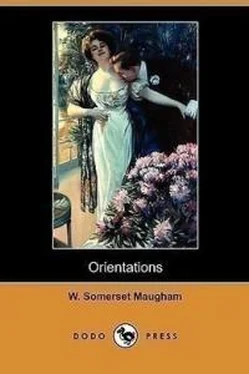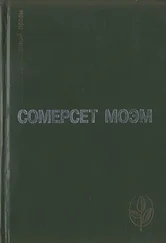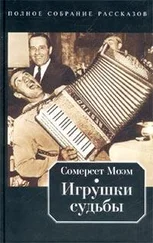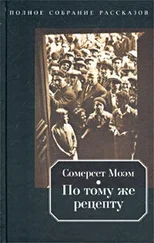Уильям Моэм - Orientations
Здесь есть возможность читать онлайн «Уильям Моэм - Orientations» весь текст электронной книги совершенно бесплатно (целиком полную версию без сокращений). В некоторых случаях можно слушать аудио, скачать через торрент в формате fb2 и присутствует краткое содержание. Год выпуска: 2014, Издательство: epubBooks Classics, Жанр: Классическая проза, на английском языке. Описание произведения, (предисловие) а так же отзывы посетителей доступны на портале библиотеки ЛибКат.
- Название:Orientations
- Автор:
- Издательство:epubBooks Classics
- Жанр:
- Год:2014
- ISBN:нет данных
- Рейтинг книги:5 / 5. Голосов: 1
-
Избранное:Добавить в избранное
- Отзывы:
-
Ваша оценка:
- 100
- 1
- 2
- 3
- 4
- 5
Orientations: краткое содержание, описание и аннотация
Предлагаем к чтению аннотацию, описание, краткое содержание или предисловие (зависит от того, что написал сам автор книги «Orientations»). Если вы не нашли необходимую информацию о книге — напишите в комментариях, мы постараемся отыскать её.
Orientations — читать онлайн бесплатно полную книгу (весь текст) целиком
Ниже представлен текст книги, разбитый по страницам. Система сохранения места последней прочитанной страницы, позволяет с удобством читать онлайн бесплатно книгу «Orientations», без необходимости каждый раз заново искать на чём Вы остановились. Поставьте закладку, и сможете в любой момент перейти на страницу, на которой закончили чтение.
Интервал:
Закладка:
But when Ferdinand spoke of Valentia to the few Frenchmen he knew, they asked him,—
'But this Miss Stewart—is she pretty?'
'Certainly—in her American way; a long face, with the hair parted in the middle and hanging over the nape of the neck. Her mouth is quite classic.'
'And have you never kissed the classic mouth?'
'I? Never!'
'Has she a good figure?'
'Admirable!'
'And yet—Oh, you English!' And they smiled and shrugged their shoulders as they said, 'How English!'
'But, my good fellow,' cried Ferdinand, in execrable French, 'you don't understand. We are friends, the best of friends.'
They shrugged their shoulders more despairingly than ever.
II
They stood on the bridge and looked at the water and the dark masses of the houses on the Latin side, with the twin towers of Notre Dame rising dimly behind them. Ferdinand thought of the Thames at night, with the barges gliding slowly down, and the twinkling of the lights along the Embankment.
'It must be a little like that in Holland,' she said, 'but without the lights and with greater stillness.'
'When do you start?'
She had been making preparations for spending the summer in a little village near Amsterdam, to paint.
'I can't go now,' cried Valentia. 'Corrie Sayles is going home, and there's no one else I can go with. And I can't go alone. Where are you going?'
'I? I have no plans…. I never make plans.'
They paused, looking at the reflections in the water. Then she said,—
'I don't see why you shouldn't come to Holland with me!'
He did not know what to think; he knew she had been reading the Symposium.
'After all,' she said, 'there's no reason why one shouldn't go away with a man as well as with a woman.'
His French friends would have suggested that there were many reasons why one should go away with a woman rather than a man; but, like his companion, Ferdinand looked at it in the light of pure friendship.
'When one comes to think of it, I really don't see why we shouldn't. And the mere fact of staying at the same hotel can make no difference to either of us. We shall both have our work—you your painting, and I my play.'
As they considered it, the idea was distinctly pleasing; they wondered that it had not occurred to them before. Sauntering homewards, they discussed the details, and in half an hour had decided on the plan of their journey, the date and the train.
Next day Valentia went to say good–bye to the old French painter whom all the American girls called Popper. She found him in a capacious dressing–gown, smoking cigarettes.
'Well, my dear,' he said, 'what news?'
'I'm going to Holland to paint windmills.'
'A very laudable ambition. With your mother?'
'My good Popper, my mother's in Cincinnati. I'm going with Mr White.'
'With Mr White?' He raised his eyebrows. 'You are very frank about it.'
'Why—what do you mean?'
He put on his glasses and looked at her carefully.
'Does it not seem to you a rather—curious thing for a young girl of your age to go away with a young man of the age of Mr Ferdinand White?'
'Good gracious me! One would think I was doing something that had never been done before!'
'Oh, many a young man has gone travelling with a young woman, but they generally start by a night train, and arrive at the station in different cabs.'
'But surely, Popper, you don't mean to insinuate—Mr White and I are going to Holland as friends.'
'Friends!'
He looked at her more curiously than ever.
'One can have a man friend as well as a girl friend,' she continued. 'And I don't see why he shouldn't be just as good a friend.'
'The danger is that he become too good.'
'You misunderstand me entirely, Popper; we are friends, and nothing but friends.'
'You are entirely off your head, my child.'
'Ah! you're a Frenchman, you can't understand these things. We are different.'
'I imagine that you are human beings, even though England and America respectively had the intense good fortune of seeing your birth.'
'We're human beings—and more than that, we're nineteenth century human beings. Love is not everything. It is a part of one—perhaps the lower part—an accessory to man's life, needful for the continuation of the species.'
'You use such difficult words, my dear.'
'There is something higher and nobler and purer than love—there is friendship. Ferdinand White is my friend. I have the amplest confidence in him. I am certain that no unclean thought has ever entered his head.'
She spoke quite heatedly, and as she flushed up, the old painter thought her astonishingly handsome. Then she added as an afterthought,—
'We despise passion. Passion is ugly; it is grotesque.'
The painter stroked his imperial and faintly smiled.
'My child, you must permit me to tell you that you are foolish. Passion is the most lovely thing in the world; without it we should not paint beautiful pictures. It is passion that makes a woman of a society lady; it is passion that makes a man even of—an art critic.'
'We do not want it,' she said. 'We worship Venus Urania. We are all spirit and soul.'
'You have been reading Plato; soon you will read Zola.'
He smiled again, and lit another cigarette.
'Do you disapprove of my going?' she asked after a little silence.
He paused and looked at her. Then he shrugged his shoulders.
'On the contrary, I approve. It is foolish, but that is no reason why you should not do it. After all, folly is the great attribute of man. No judge is as grave as an owl; no soldier fighting for his country flies as rapidly as the hare. You may be strong, but you are not so strong as a horse; you may be gluttonous, but you cannot eat like a boa–constrictor. But there is no beast that can be as foolish as man. And since one should always do what one can do best—be foolish. Strive for folly above all things. Let the height of your ambition be the pointed cap with the golden bells. So, bon voyage! I will come and see you off to–morrow.'
The painter arrived at the station with a box of sweets, which he handed to Valentia with a smile. He shook Ferdinand's hand warmly and muttered under his breath,—
'Silly fool! he's thinking of friendship, too!'
Then, as the train steamed out, he waved his hand and cried,—
'Be foolish! Be foolish!'
He walked slowly out of the station, and sat down at a café . He lit a cigarette, and, sipping his absinthe, said,—
'Imbeciles!'
III
They arrived at Amsterdam in the evening, and, after dinner, gathered together their belongings and crossed the Ij as the moon shone over the waters; then they got into the little steam tram and started for Monnickendam. They stood side by side on the platform of the carriage and watched the broad meadows bathed in moonlight, the formless shapes of the cattle lying on the grass, and the black outlines of the mills; they passed by a long, sleeping canal, and they stopped at little, silent villages. At last they entered the dead town, and the tram put them down at the hotel door.
Next morning, when she was half dressed, Valentia threw open the window of her room, and looked out into the garden. Ferdinand was walking about, dressed as befitted the place and season—in flannels—with a huge white hat on his head. She could not help thinking him very handsome—and she took off the blue skirt she had intended to work in, and put on a dress of muslin all bespattered with coloured flowers, and she took in her hand a flat straw hat with red ribbons.
'You look like a Dresden shepherdess,' he said, as they met.
They had breakfast in the garden beneath the trees; and as she poured out his tea, she laughed, and with the American accent which he was beginning to think made English so harmonious, said,—
Читать дальшеИнтервал:
Закладка:
Похожие книги на «Orientations»
Представляем Вашему вниманию похожие книги на «Orientations» списком для выбора. Мы отобрали схожую по названию и смыслу литературу в надежде предоставить читателям больше вариантов отыскать новые, интересные, ещё непрочитанные произведения.
Обсуждение, отзывы о книге «Orientations» и просто собственные мнения читателей. Оставьте ваши комментарии, напишите, что Вы думаете о произведении, его смысле или главных героях. Укажите что конкретно понравилось, а что нет, и почему Вы так считаете.










